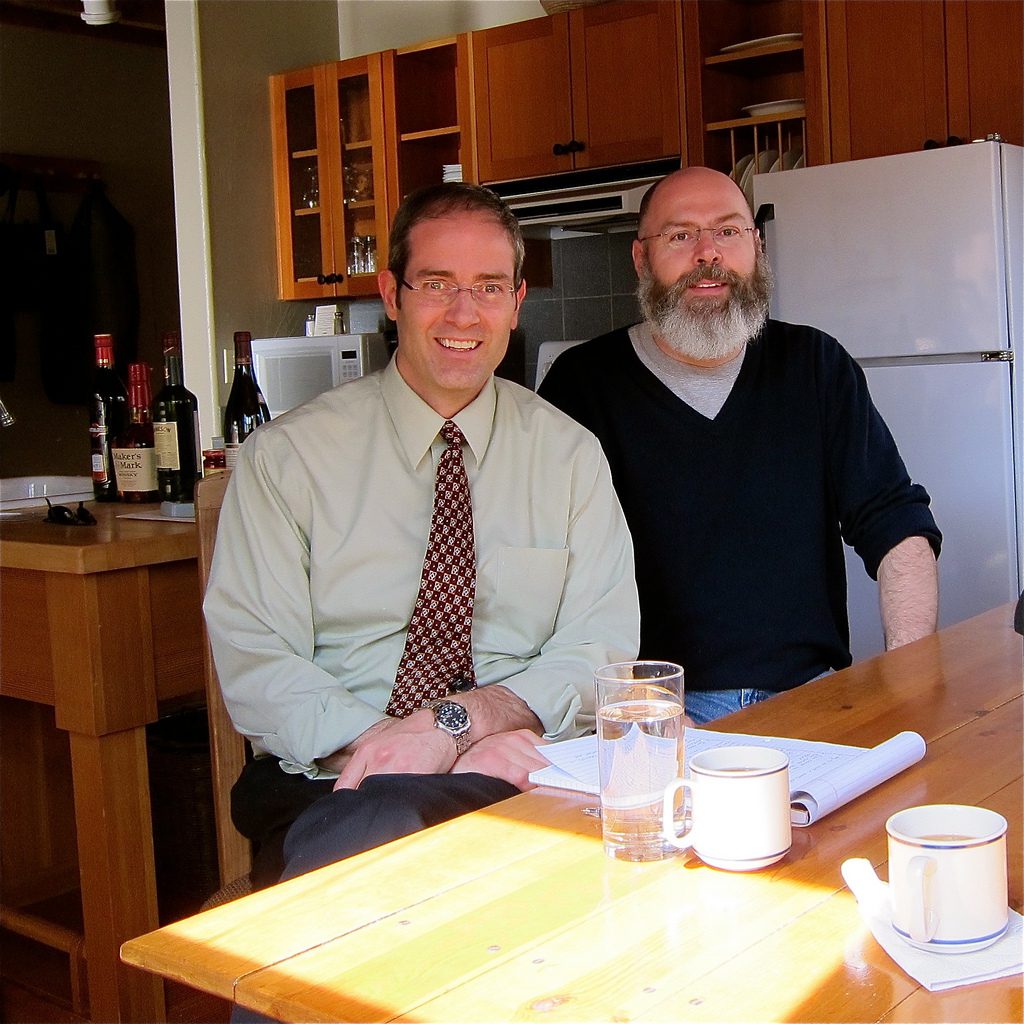
/
RSS Feed
John Lysaker, Professor of Philosophy at Emory University, turns the tables on me for this episode of the Digital Dialogue. As promised in episode 16 in which John and I discussed his book, Emerson and Self-Culture, John took the lead to interview me after the panel on my book, Aristotle on the Nature of Truth, at the 2011 Ancient Philosophy Society in Sundance, UT.
I am very grateful for John’s thoughtful and provocative questions as it gave me a chance to expand on my positions in ways I could not during the question and answer period of the book panel.
To give you more context for our discussion, I invite you to listen to the commentaries on my book from the panelists and my responses. John and I were able to delve into more depth about the nature of legomenology and what he suggested are the conditions that enable such an approach to philosophy. I was also happy to have the opportunity to speak in more detail about my suggestion in the book that “God is relationality” (Aristotle on the Nature of Truth, 237).
Here is a slideshow of pictures from episodes of the Digital Dialogue:


this was excellent a couple of quick thoughts, enable works better for me because unlike cooperation it doesn't suggest an interest/investment on the part of inanimate objects, and the question of divine as honorific or ontological seems important as one could be coming close to something akin to Whitehead's process theology, also we need some less intimate relationship than friendship for our civic/public lives something more like collegiality, so not 50's style paternalism or our current gossipy-consumerism but meritocracy.
http://www.janushead.org/8-2/lingis.pdf http://www.radicalphilosophy.com/pdf/Stengers157….
I understand your concern about "cooperation" versus "enable" which is why I embraced that terminology in the discussion with John.
However, the problem with speaking exclusively in terms of "enabling conditions" is that it might be heard to remain fundamentally anthropocentric insofar as abilities belong to animate beings and perhaps most obviously to human beings. If we understand "abilities" in terms of the things something can do, then perhaps we are getting close to what I want to suggest, following Woodbridge, by "cooperation."
Of course, your suggestion is that "cooperation" is worse because it allegedly anthropomorphizes inanimate objects. However, I want to insist that inanimate objects do cooperate with human beings insofar as they have embodied properties that are discernible by us through our powers of perception, imagination and evening thinking. If a rock was not able to reflect light in certain ways, we would not be able to perceive it. If it didn't operation in specific ways with us and the other things it comes into relation, we would not be able to have anything like a science of geology. In these senses, the properties of the rock cooperate, work together with, the powers of the human soul. This, I think, is the meaning of cooperation in Woodbridge, and it is this sense in which I use the term in my book.
It is decidedly not intended to ascribe interest/investment to inanimate objects.
I used to think in terms of affordances, after Gibson, but it isn't easy to find a clear vocab that leads to the intended reader-responses to evoke what Pickering called the "mangle" of practices,
there is a related conversation trying to work these matters through in terms of (and sometimes against, like a ladder is against a wall) object -oriented philosophy @: http://www.archivefire.net/2011/06/wilderness-of-… http://larvalsubjects.wordpress.com/ http://doctorzamalek2.wordpress.com/2011/06/08/my…